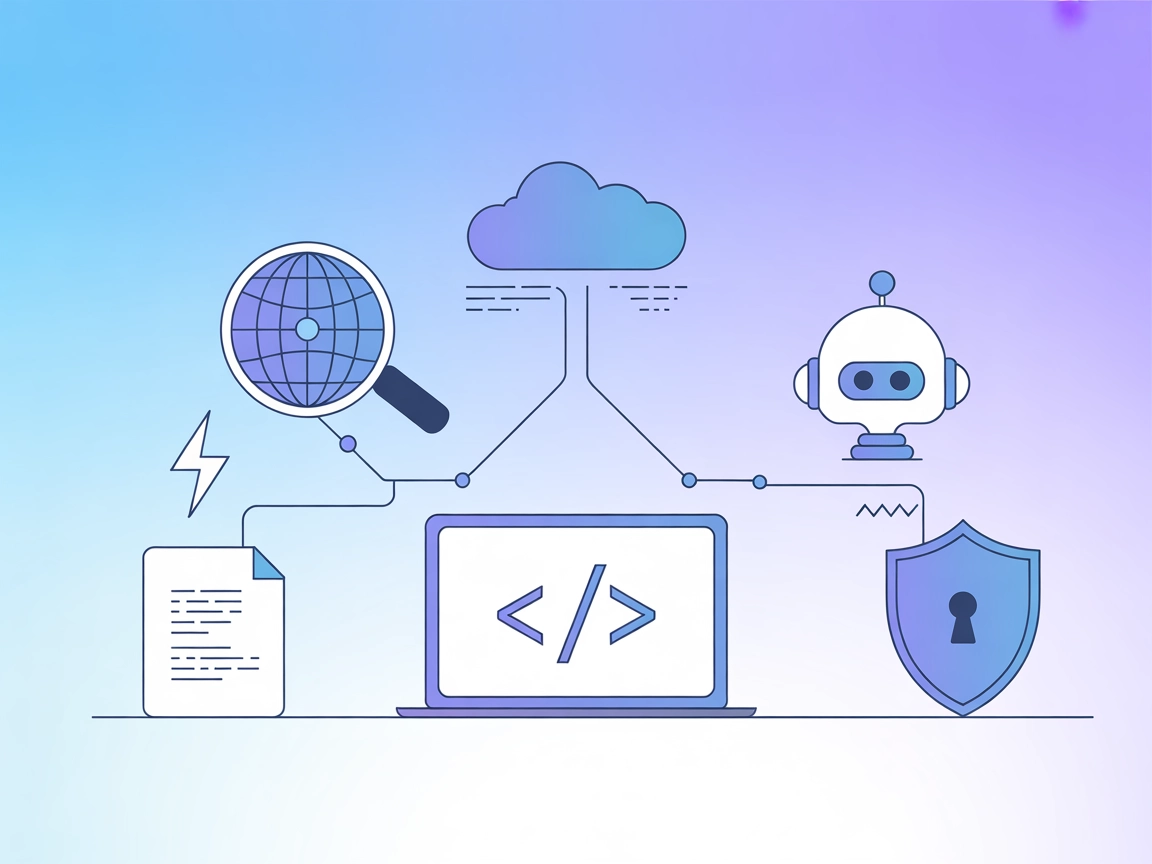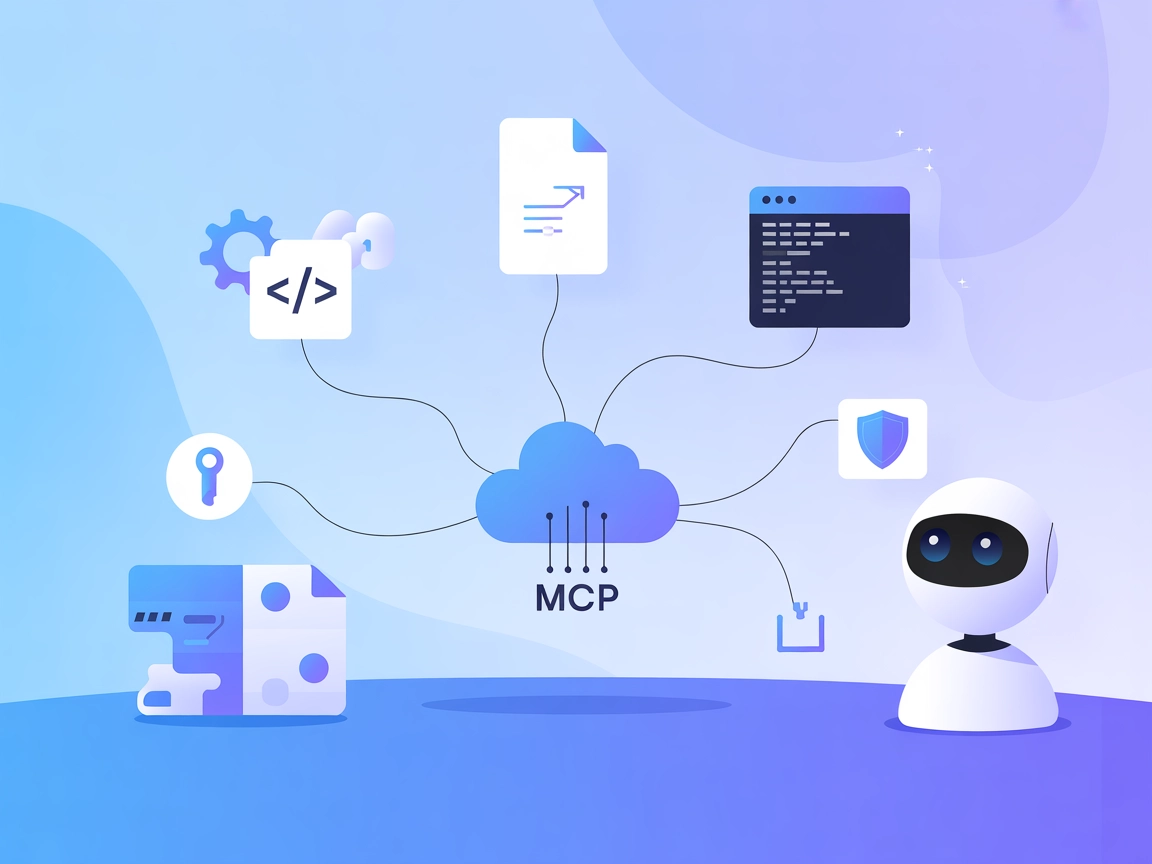
Model Context Protocol (MCP) Server
The Model Context Protocol (MCP) Server bridges AI assistants with external data sources, APIs, and services, enabling streamlined integration of complex workfl...

SHODAN-MCP brings the power of Shodan’s internet-wide device search and security analytics to FlowHunt, enabling seamless AI-driven threat intelligence and vulnerability assessment.
FlowHunt provides an additional security layer between your internal systems and AI tools, giving you granular control over which tools are accessible from your MCP servers. MCP servers hosted in our infrastructure can be seamlessly integrated with FlowHunt's chatbot as well as popular AI platforms like ChatGPT, Claude, and various AI editors.
SHODAN-MCP is a powerful interface to the Shodan API, designed to simplify interaction with the world’s first search engine for Internet-connected devices. It provides a comprehensive set of tools for security researchers, penetration testers, and cybersecurity professionals to explore, analyze, and monitor the global internet landscape. By exposing Shodan’s capabilities through the Model Context Protocol (MCP), the SHODAN-MCP server enables AI assistants and development tools to perform advanced queries, analyze vulnerabilities, and gather host intelligence directly from the Shodan API. This integration streamlines tasks such as network mapping, vulnerability assessment, and device discovery, significantly enhancing development and research workflows involving cybersecurity intelligence.
No information regarding prompt templates is provided in the repository.
No explicit resources section is documented in the repository.
No direct tool definitions are provided in the root README or visible code structure. The server appears to expose actions such as search, host information retrieval, vulnerability discovery, and DNS intelligence, but these are described as features rather than MCP tool primitives.
"mcpServers": {
"shodan-mcp": {
"command": "python",
"args": ["shodan-mcp-server/main.py"]
}
}
Store your API key in an environment variable:
{
"env": {
"SHODAN_API_KEY": "your_api_key_here"
},
"inputs": {}
}
"mcpServers": {
"shodan-mcp": {
"command": "python",
"args": ["shodan-mcp-server/main.py"]
}
}
"mcpServers": {
"shodan-mcp": {
"command": "python",
"args": ["shodan-mcp-server/main.py"]
}
}
"mcpServers": {
"shodan-mcp": {
"command": "python",
"args": ["shodan-mcp-server/main.py"]
}
}
Using MCP in FlowHunt
To integrate MCP servers into your FlowHunt workflow, start by adding the MCP component to your flow and connecting it to your AI agent:

Click on the MCP component to open the configuration panel. In the system MCP configuration section, insert your MCP server details using this JSON format:
{
"shodan-mcp": {
"transport": "streamable_http",
"url": "https://yourmcpserver.example/pathtothemcp/url"
}
}
Once configured, the AI agent is now able to use this MCP as a tool with access to all its functions and capabilities. Remember to change “shodan-mcp” to whatever the actual name of your MCP server is and replace the URL with your own MCP server URL.
| Section | Availability | Details/Notes |
|---|---|---|
| Overview | ✅ | Clear description in README.md |
| List of Prompts | ⛔ | No prompt templates documented |
| List of Resources | ⛔ | No explicit resources documented |
| List of Tools | ⛔ | Tools described as features, not as explicit MCP tools |
| Securing API Keys | ✅ | Shows .env usage and JSON env example |
| Sampling Support (less important in evaluation) | ⛔ | No sampling feature documented |
Based on the above, SHODAN-MCP provides a great overview and setup guidance, but lacks documentation for prompts, resources, tools, and sampling/roots support. For a developer seeking a plug-and-play MCP with rich LLM integration patterns, it may require additional work. My rating: 4/10.
| Has a LICENSE | ✅ (MIT) |
|---|---|
| Has at least one tool | ⛔ |
| Number of Forks | 1 |
| Number of Stars | 5 |
SHODAN-MCP is an interface to the Shodan API, allowing AI agents and development tools to perform device discovery, vulnerability analysis, and network mapping using the Model Context Protocol (MCP) within FlowHunt workflows.
SHODAN-MCP enables vulnerability discovery, host intelligence gathering, network mapping, security research, and organizational or geographic threat analysis directly from FlowHunt.
Install Python 3.8+, obtain a Shodan API key, clone the SHODAN-MCP repository, and follow the client-specific configuration steps for Windsurf, Claude, Cursor, or Cline as described above.
Yes, you should store your API key in an environment variable as shown in the configuration instructions to keep it secure and out of source code.
No, SHODAN-MCP exposes actions such as search and vulnerability analysis as features, but does not include prompt templates or explicit MCP tool primitives in its documentation.
Unlock real-time device discovery and vulnerability analysis by connecting SHODAN-MCP to your FlowHunt flows. Enhance your security automation and threat intelligence today.

The Model Context Protocol (MCP) Server bridges AI assistants with external data sources, APIs, and services, enabling streamlined integration of complex workfl...

The Search1API MCP Server integrates real-time web search and crawling capabilities into AI agents via the powerful Search1API, enabling live information retrie...

The Markitdown MCP Server bridges AI assistants with markdown content, enabling automated documentation, content analysis, and markdown file management for enha...
Cookie Consent
We use cookies to enhance your browsing experience and analyze our traffic. See our privacy policy.